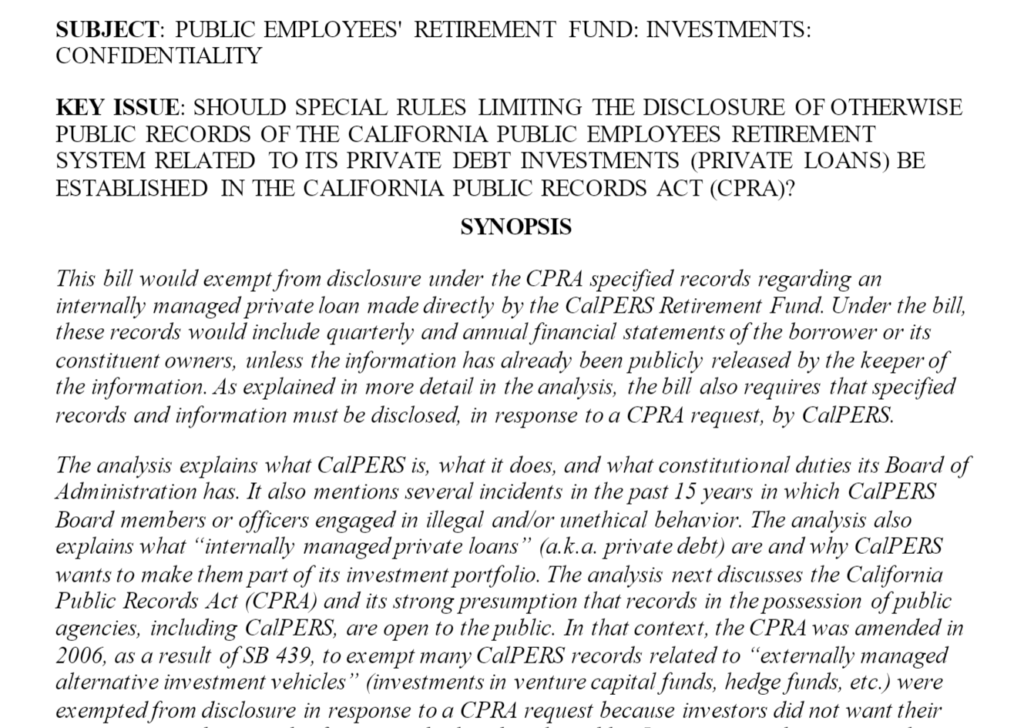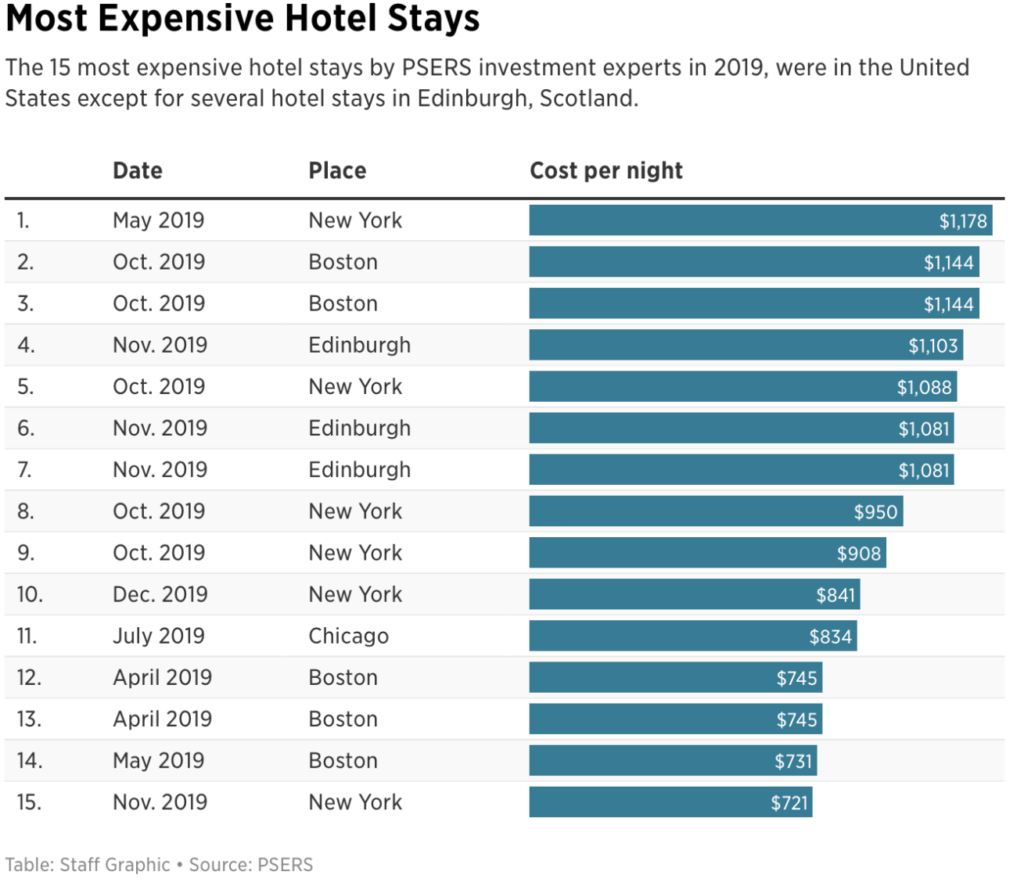Excerpt:
Walters’ piece has been picked up by the Mercury News and other in-state papers. Since the bill has yet to go to the Senate, his intervention will make it much harder for Sacramento insiders to simply waive the legislation through and pretend they didn’t know about its rancid features.
We wrote up last week in part because the Judiciary Committee staff took the unusual step of sharply questioning whether CalPERS could and should be trusted with the powers it would provide. CalPERS wants to make loans and be exempt from disclosure…including who got the loan, in what amount, what the terms were (such as interest and collateral). The latter is important not just to determine if CalPERS is making proper credit judgments but also to see if it is handing out sub-market loans to cronies. There’s a proud history of this sort of thing. Remember, for instance, the “Friends of Angelo” scandal, when Countrywide gave out mortgages on extremely favorable terms to powerful politicians including Senate Banking Committee chair Christopher Dodd (D-CT), and Senate Budget Committee chair Kent Conrad.
Similarly, the reason yours truly has not been an advocate of public banks is they were tried in the US and virtually all failed. Most states and even some cities had them. All save North Dakota’s were eventually shuttered due to large-scale corruption and losses. I have not seen any of the proponents of public banks in the US demonstrate any awareness of their history of becoming piggy-banks for local notables, much the less recommend how to stop that from happening again. What CalPERS is proposing is an even more degraded version of the old, crooked, insider-controlled public banks.
Author(s): Yves Smith
Publication Date: 5 May 2021
Publication Site: naked capitalism



